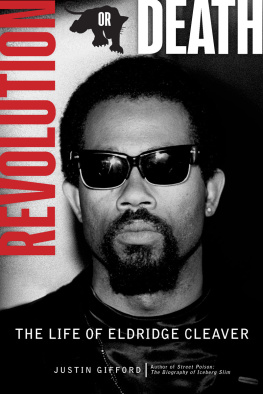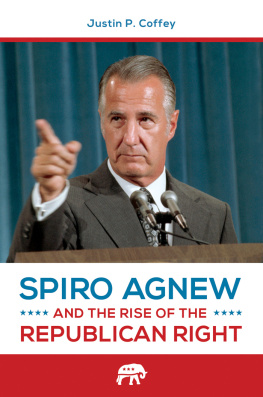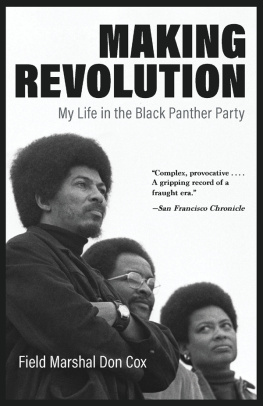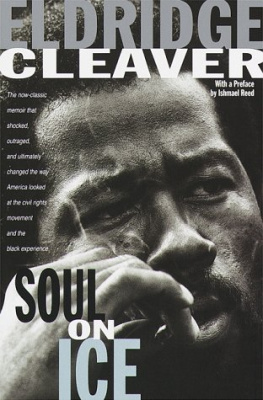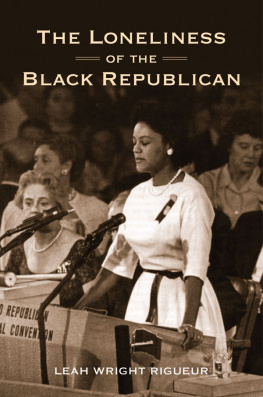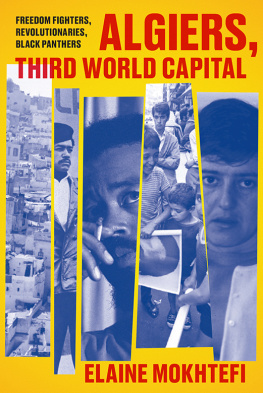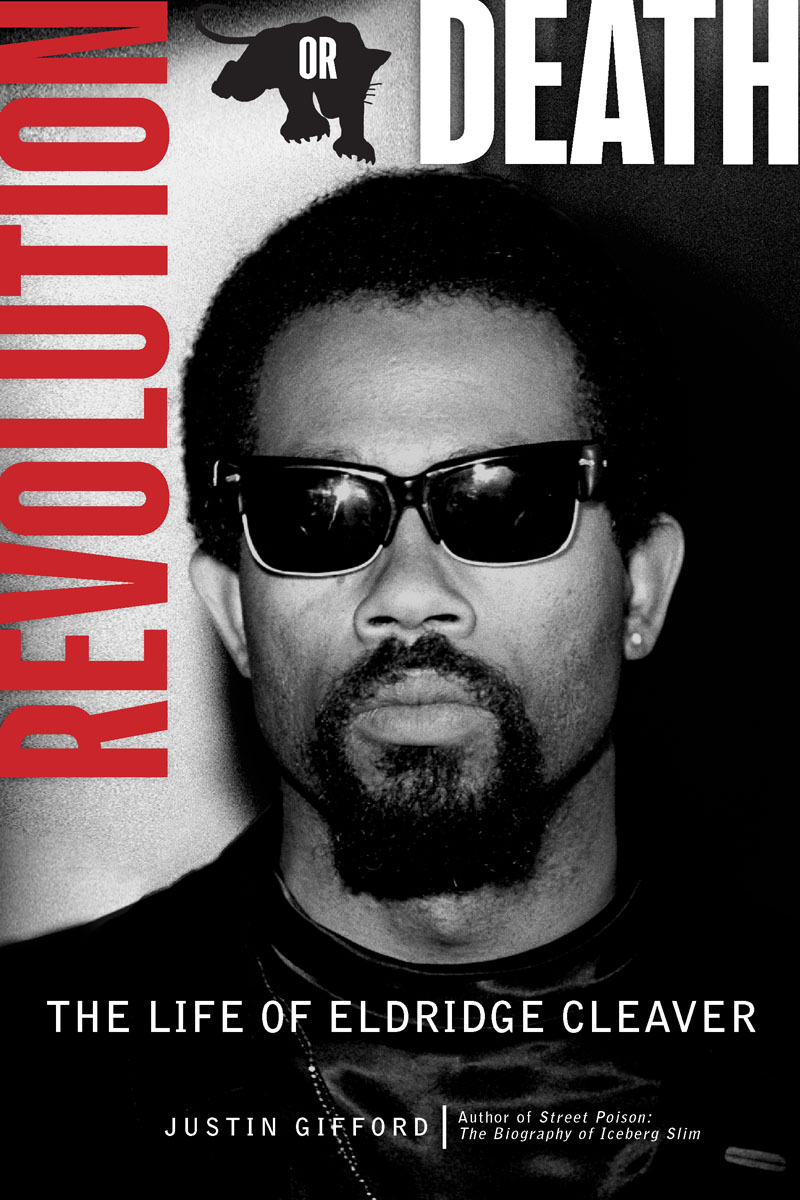
IN THE 1960S, NO BLACK POLITICAL GROUP STOOD FOR GRASSROOTS INSURGENCY MORE THAN THE BLACK PANTHER PARTY.
And the figure who embodied their militant and controversial spirit more than anyone was Eldridge Cleaver. Charismatic, brilliant, and courageous, Cleaver built a base of power and influence that struck fear deep in the heart of white America. It was therefore shocking to many left-wing radicals when Cleaver turned his back on black revolution, the Nation of Islam, and communism in 1975. While Cleaver seemed sincerely disillusioned with radicalism, his erratic behavior over the next two decades revealed something that had been a latent part of his psyche all alongnarcissistic megalomania. His influence declined significantly through the 1980s until he found himself back on the streets committing petty crimes. By the time he died, in 1998, he was largely viewed as a turncoat who had betrayed the cause of black freedom.
How can we make sense of Cleavers precipitous decline from his position as one of Americas most vibrant black writers and activists? And how do his contradictory identities as criminal, party leader, international diplomat, Christian conservative, and Republican politician reveal that he was more than just a traitor to the advancement of civil rights? In Revolution or Death, acclaimed biographer Justin Gifford answers these questions and many more by providing, for the first time, the life story of one of the most notorious black revolutionaries in history. He explores the audacious dreams and spiritual transformations of the eccentric radical and places him squarely within the context of his changing times. Gifford was granted exclusive access to declassified files from the French police, the American embassy, and the FBI, as well as Kathleen Cleavers private archive, and he explored previously unseen documents from archives around the world. He draws from a massive body of materials to reassemble the story of a man far more compelling and complex than most have given him credit for. In a country defined by its extreme political positions on the right and left, Cleaver embodied both ideologies in pursuit of his conflicting ideals. His inability to resolve these competing desires ultimately destroyed him.
Copyright 2020 by Justin Gifford
All rights reserved
First edition
Published by Lawrence Hill Books
An imprint of Chicago Review Press Incorporated
814 North Franklin Street
Chicago, Illinois 60610
ISBN 978-1-61373-911-2
Library of Congress Cataloging-in-Publication Data
Names: Gifford, Justin, 1975- author.
Title: Revolution or death : the life of Eldridge Cleaver /Justin Gifford.
Other titles: Life of Eldridge Cleaver
Description: First edition. | Chicago : Lawrence Hill Books, [2020] | Includes index. | Summary: The first trade biography of one of the most notorious black revolutionaries in history, exploring the audacious dreams and spiritual transformations of the eccentric radical and placing him squarely within the context of his changing timesProvided by publisher.
Identifiers: LCCN 2020026189 (print) | LCCN 2020026190 (ebook) | ISBN 9781613739112 (cloth) | ISBN 9781613739129 (adobe pdf) | ISBN 9781613739136 (mobi) | ISBN 9781613739143 (epub)
Subjects: LCSH: Cleaver, Eldridge, 1935-1998. | African American political activistsBiography. | Political activistsUnited StatesBiography. | African AmericansPolitics and government20th century. | United StatesRace relationsHistory20th century. | Black Panther Party.
Classification: LCC E185.97.C6 G54 2020 (print) | LCC E185.97.C6 (ebook) | DDC 323.092 [B]dc23
LC record available at https://lccn.loc.gov/2020026189
LC ebook record available at https://lccn.loc.gov/2020026190
Interior design: Jonathan Hahn
Printed in the United States of America
5 4 3 2 1
In memory of Karen Gifford
CONTENTS
Prologue
ESCAPE (1968)
SLAVERY AND THE AMERICAN SOUTH (18381944)
PHOENIX AND THE WEST (19441945)
LOS ANGELES AND THE GREAT MIGRATION (19451949)
REFORM SCHOOL (19501954)
SOLEDAD PRISON (19541957)
SAN QUENTIN PRISON (19581963)
FOLSOM PRISON (19631965)
CALIFORNIA MENS COLONY AND SOLEDAD PRISON (19651966)
OAKLAND (19661968)
REBELLION (1968)
CUBA (19681969)
ALGERIA (19691970)
THE INTERNATIONAL SECTION OF THE BLACK PANTHER PARTY (19701972)
PARIS (19731975)
BORN AGAIN (19751981)
AMERICA (19811998)
PREFACE AND ACKNOWLEDGMENTS
When I first met Eldridge Cleavers son Ahmad at a small caf in Casablanca in the spring of 2018, he was carrying a small suitcase and a handmade beehive box. Ahmad, who was originally named Maceo after the Cuban revolutionary Antonio Maceo, was a beekeeper in Saudi Arabia. He had agreed to sit down with me for a series of interviews about his father on the condition that we meet in Casablanca. One hundred miles outside of the city there lived a master beekeeper who practiced ancient Berber methods, and she had agreed to train Ahmad. The beehive was a gift for his new mentor.
Ahmad arrived a few hours late. He apologized profusely and explained that the authorities always held him at the airport for hours to question him and search through his bags. They think I am secretly another Eldridge Cleaver, he told me. Now that we have been seen together, they will probably question you at the airport now too. He was right. When I later tried to fly out of the Casablanca airport, I was told there was a problem with my passport. I was taken to a small windowless room, where I was questioned in Arabic and French about I dont know what. At one point, an official came into the room and placed a pair of handcuffs on the desk where I was sitting. After an hour of interrogation, they stamped my passport and let me go.
Ahmad was hauling around his luggage because the hotel he had booked turned out to be a womens rooming house. He asked if he could stay with me. For the next week, we shared an apartment near the ocean overlooking the El Hank Cemetery. I interviewed him daily, and what emerged from our conversations about his father was the captivating story of a man who defied easy political or ideological categorization.
At the height of his fame, Cleaver led the Black Panther Party as a revolutionary activist, calling for the destruction of the United States government. Later, he became a neoconservative who voted for Ronald Reagan and praised the American military. He built an international coalition of radicals dedicated to overthrowing colonialism all over the world, and after he converted to Christianity, he aspired to become the black Billy Graham and bring a spiritual revolution to society. Over the course of his life, he was a Catholic, a Muslim, a born-again Christian, a Moonie, and a Mormon, though he never fully identified with any of these religious identities. Cleaver was a chameleon who adapted quickly to changing political and social circumstances. He was a man of seemingly irreconcilable contradictions, and these contradictions made me want to uncover his story and understand his life.
On my last day in Casablanca, Ahmad and I were walking through the Old Medina when he got a call from his mother, Kathleen Cleaver. He told her about my book and then handed me the phone. Kathleen was warm and effusive. We talked briefly, and she invited me to visit her at her home in Atlanta. She was willing to be interviewed, and, whats more, she had an entire attic full of Cleavers papers that I could study.
Next page
